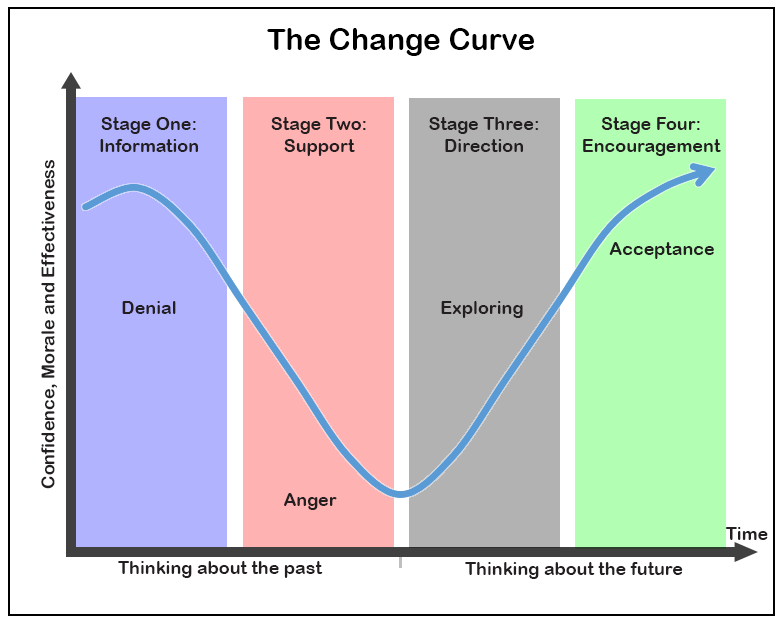The key is in how you view change, and your level of acceptance of uncertainty.
There is plenty of evidence that what we find most stressful as human beings is uncertainty, not change in itself. Even the most difficult life events, such as divorce or marital separation, can be more stressful in terms of the uncertainty.
Very often, it’s not the event, but the worry about ‘what will I do?’, or ‘how will the children cope?’ that people find hard. But there are some simple skills that you can develop that will help you to manage change in your own life, whether through work or life events.
Stress: Some Background
Our pages on stress management provide more information about understanding stress and stressful life events, but here it is worth repeating that stress is not all in the mind. Stress can cause genuine physical symptoms, including dizziness, tension headaches, diarrhoea and insomnia, which in turn can make you feel worse, and even more stressed.
This kind of ‘negative feedback loop’ is common in nature, and is designed to make you stop! Your body is trying to tell you something and, if you don’t listen to it, you could find yourself becoming very ill indeed.
Don’t be tempted to ignore the symptoms of stress, and hope that they go away by themselves. They won’t. Instead, you need to deal with the causes.
If you are struggling with stress and it's making you unwell you should seek professional help from a counsellor or health-care provider.
There is plenty of evidence that we all go through more or less the same process when dealing with change, although particular stages may take rather longer in some cases than others.
Elizabeth Kubler-Ross looked at the way people come to terms with the news that they have a terminal illness, and developed a model called the Transition or Change Curve. Later studies showed that people react in similar ways to bereavement and also to changes at work.

The model shows that people start in a state of denial, with quite high levels of energy and confidence, but that confidence and energy then dip as they feel the need for support, and then become angry, asking questions like ‘Why me?’. They then start to move towards exploration of their condition and new options, and into acceptance.
The most important element to remember is that:
Once you have made your final decision about what you can and can’t change, and what you are going to do about it, stick to it.
Accept your decision and move on. Don’t constantly worry about ‘what if’, as that will undermine all your good work in parking the things that you can’t control. It doesn’t even matter if the reason that you can’t realistically do anything is ‘I have too much else on in my life to have time to deal with this’. It’s fine. Give yourself a break, and accept your own wisdom.
Resource: skillsyouneed.com
Không có nhận xét nào:
Đăng nhận xét